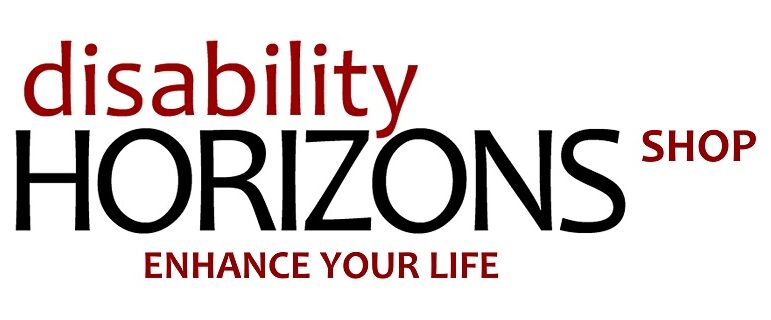Breaking Down Barriers for Autistic Professionals in the Job Market
This article is co-written by Alex Rivers (a pseudonym), an autistic IT professional who approached us to share their frustrations with the job market. Despite having extensive experience in technical support and holding multiple industry-recognized certifications, Alex has faced significant barriers in securing meaningful employment.
When attempting to progress to more senior positions, Alex encountered several challenges:
- Limited Remote Opportunities: Fully remote roles are scarce, and hybrid setups—which dominate senior positions—do not accommodate Alex’s needs. Even when remote roles are available, they are often secured by non-autistic candidates.
- Lack of Flexibility from Recruiters: Recruitment agencies across the industry consistently focus solely on meeting client needs, often disregarding diversity and inclusivity. While promises of callbacks for suitable roles are common, they rarely materialize, leaving neurodiverse candidates unsupported.
- Inaccessible Training Opportunities: Efforts to access additional training through organizations like the DWP, local funding bodies, and even autism-focused charities have been equally discouraging. Despite being made to go through numerous processes and jumping through hoops, Alex was ultimately denied funding. This left the impression that these systems are designed to appear supportive while offering no tangible help for older individuals seeking to reskill.
- Lack of Support from Authorities and Organisations: Alex reached out to MPs, DWP ministers, numerous autism charities, and media outlets to advocate for better support and awareness of the challenges faced by neurodiverse individuals. Unfortunately, most responses have been unhelpful or dismissive, further highlighting the systemic neglect of these issues.
- Stressful Interview Processes: Interview setups often fail to consider the needs of autistic individuals, offering little notice or flexibility and relying on unsuitable, rigid evaluation methods.
These barriers, paired with a lack of systemic support from recruiters, employers, funding organizations, and advocacy groups, have stalled Alex’s career progression, leaving them out of work for over a year and a half. Feeling disheartened, Alex now seeks to advocate for systemic change in how neurodiverse candidates are supported in the workplace.
This article explores Alex’s personal journey and offers actionable insights to create a more inclusive and equitable job market for autistic professionals
Key Takeaways
| Issue | Solution |
| A traditional recruiting platform and interview process creates barriers for autistic candidates. | Replace structured interviews with work trials to assess real-world skills and reduce reliance on social interaction. |
| Contracting roles often lack support for neurodiverse professionals. | Make contracting roles more neurodivergent-friendly by offering flexible arrangements, tailored onboarding, and inclusive evaluation processes. |
| Remote work supports neurodiverse employees by reducing sensory overload. | Promote remote work opportunities, particularly in technical roles, and provide flexibility as a reasonable adjustment. |
| Employers lack inclusive hiring practices. | Provide mandatory neurodiversity training for hiring managers, implement alternative evaluation methods, and ensure clear job descriptions. |
| Legislative support is insufficient. | Introduce government incentives and policies to encourage inclusive hiring practices, such as tax breaks for companies that offer remote roles or work trials. |
| Lack of accessible training opportunities. | Expand access to funded training programs for neurodiverse individuals, particularly older candidates, and streamline application processes. |
Autistic professionals often face unfair barriers to finding good jobs
Even with skills and certifications, traditional hiring processes make it difficult to succeed.
“Over the past year, I participated in multiple interviews for senior remote positions. Despite my expertise, I was unsuccessful—not because of a lack of skill, but because the hiring processes were not designed with neurodiverse individuals in mind. These processes created unnecessary stress and failed to provide a fair opportunity to showcase my abilities. Ultimately, this experience led me to give up the job search, as I felt the barriers were insurmountable.” Alex
Challenges Faced by Autistic Professionals

Stressful and Exclusionary Interviews
Structured interviews are a big part of the problem. They don’t allow autistic candidates to show their practical skills. Instead, they focus on social interaction or hypothetical situations, which can be challenging for many neurodiverse individuals.
Structured interviews often rely on hypothetical questions or personal interaction. These formats can be stressful for autistic candidates. They also fail to highlight technical skills, which are key for many roles.
“I have experience in IT, including certifications and practical knowledge in various technical areas. However, despite these qualifications, I’ve found it challenging to progress due to the conventional interview process. Interviews can be stressful for neurodiverse individuals like myself, especially when it comes to structured questions or scenario-based problem-solving tasks. These tasks often don’t allow me to demonstrate my skills in a way that reflects my abilities or experience.
The impact of these challenges has been significant. I’ve faced rejection after rejection, not because of my lack of qualifications, but because the processes did not accommodate my neurodiversity. As a result, many neurodiverse individuals, like myself, are excluded from roles that they are qualified for simply due to the interview format.” Alex
Challenges in Traditional Interviews for Neurodiverse Candidates
Traditional interviews often exclude neurodiverse people because they do not align with their strengths, leaving many qualified candidates without opportunities. Key challenges include:
1. Reliance on Social Cues: Interviews heavily rely on social interaction and communication skills, which can be challenging for neurodiverse individuals.
2. Biases in Assessment: Traditional interviews and assessments can be biased towards neurotypical candidates, overlooking unique skills and perspectives.
3. Lack of Accommodations: Failing to provide necessary accommodations can disadvantage neurodiverse candidates.
4. Sensory Challenges: Traditional interview settings can be overwhelming for neurodiverse candidates.
Creating a More Inclusive Recruitment Process
To address these challenges, employers can make several adjustments:
1. Structured Interviews: Use direct, closed questions to help neurodiverse candidates better understand expectations and reduce anxiety.
2. Flexible Formats: Offer alternative interview formats, such as video submissions or practical assessments.
3. Clear Job Descriptions: Ensure job descriptions are clear and specific, focusing on essential skills and qualifications.
4. Education and Training: Educate hiring managers and teams on neurodiversity to foster a supportive interview environment.
The Remote Work Advantage for Autistic Professionals
Remote work can significantly benefit autistic professionals by reducing sensory overload and improving focus. Key benefits include:
1. Reduced Sensory Overload: Remote work allows individuals to control their sensory inputs, which is crucial for managing sensory sensitivities.
2. Improved Focus: Remote work helps neurodiverse employees focus better and be more productive by allowing them to create a comfortable work environment.
3. Better Work Experiences: Remote work can lead to higher motivation and better work experiences for neurodiverse individuals.
“Fully remote work should be recognized as a reasonable adjustment, with government incentives for companies to hire autistic individuals who are skilled but lack conventional experience.” Alex
Unnecessary Steps in Hiring Processes
Some companies promote neurodiverse hiring but still require candidates to complete traditional interviews before work trials. This adds stress and often discourages candidates.
Work trials alone are a better way to assess real-world skills. They allow autistic candidates to show their abilities in practical settings without unnecessary stress.
“Work trials offer something no interview can—a real chance to demonstrate my skills in action, without the added barriers of hypothetical questions or social pressure.” —Alex
Reforming Hiring Practices for Inclusivity
- Work Trials as the Main Hiring Tool
- Use work trials instead of structured interviews.
- Evaluate candidates based on real-world tasks.
- This approach removes the bias of traditional interviews and allows candidates to shine in practical settings.
“The additional step of a work trial—offered only after a candidate has passed the interview—does not alleviate the problem. For many autistic candidates, completing a traditional interview process can already be overwhelming. Adding a work trial on top of that, with no guarantee of securing the job, creates unnecessary stress and can unfairly disadvantage neurodiverse individuals who may excel in a work environment but struggle with the interview format.” Alex
Offer Remote Work Opportunities

- Make remote roles available for neurodiverse professionals.
- Ensure these roles reduce sensory stress and provide flexibility.
- Train Hiring Managers
- Teach hiring teams about autism and neurodiversity.
- Equip them to create fair, welcoming hiring processes.
Government Incentives
- Provide tax breaks or other rewards for companies that use inclusive hiring practices.
- Pass laws that encourage work trials and remote work options for neurodiverse individuals.
Examples of Government Incentives for Inclusive Hiring
To encourage inclusive hiring practices, governments can offer various incentives. For example:
- Australia’s Employment Assistance Fund: Provides financial assistance for workplace modifications and assistive technology.
- Canada’s Opportunities Fund for Persons with Disabilities: Offers grants for job training, workplace accommodations, and onboarding assistance.
- United Kingdom’s Access to Work Program: Funds necessary adjustments, including assistive technology and support workers.
- United States’ Work Opportunity Tax Credit (WOTC): Provides tax credits to employers who hire individuals from target groups, including disabled people.
- Germany’s Quota System for Disabled Employment: Mandates that companies with 20 or more employees must ensure at least 5% of their workforce consists of disabled individuals.
While the UK’s Access to Work Program is a step in the right direction, it falls short compared to initiatives in other countries that proactively address workplace diversity and incentivize inclusive hiring practices.
Case Studies in Inclusive Hiring
Neurodiversity Hiring Programs
Some very big companies like SAP and Microsoft have started programs to hire neurodiverse employees. However, these programs often include additional layers of interviews, such as extended assessments and mock technical exercises. While intended to provide a supportive evaluation process, these steps can still pose barriers for neurodiverse candidates by adding stress and unnecessary complexity.
1. SAP’s Autism at Work Program: Includes structured staffing and orientation systems with ongoing support and training for both employees and managers. However, candidates must first navigate multiple interview stages before accessing work trials, which can deter many neurodiverse individuals.
2. Microsoft’s Neurodiversity Hiring Program: Uses an extended interview process with online technical assessments and mock interviews to help candidates prepare. While the intention is to support neurodiverse applicants, these additional steps may still disadvantage autistic candidates who struggle with traditional evaluation formats.
These programs demonstrate that large corporations can successfully create supportive environments for neurodiverse professionals. However, they also highlight the need for more streamlined and inclusive hiring practices to truly reduce barriers and ensure equity for neurodiverse candidates
The Way Forward
The job market must change to support autistic professionals. Replacing traditional interviews with work trials, expanding remote work, and offering government incentives can create a fairer system.
As part of these efforts, we have launched a petition advocating for systemic changes in hiring practices to make them more inclusive for neurodiverse individuals. By signing and sharing this petition, you can help raise awareness and drive meaningful change in how organisations approach hiring.
Click Here To Sign the Petition
An inclusive workforce doesn’t just help neurodiverse employees—it also benefits companies by bringing in fresh perspectives and valuable skills. By making these changes, we can break down barriers and ensure everyone has the chance to succeed.
About the Author
Alex Rivers (a pseudonym, as this author wishes to remain anonymous) is an autistic IT professional with extensive experience in technical support and a range of industry-recognised certifications. They have navigated the challenges of the job market firsthand, facing barriers in traditional interview processes that often fail to accommodate neurodiverse individuals.
Through their personal journey, they’ve developed a deep understanding of the systemic issues that autistic professionals encounter in the workplace. Passionate about advocating for inclusive hiring practices, they share their insights to help organisations rethink how they assess talent and create more equitable opportunities.
Their story sheds light on the real-world impact of exclusionary practices and highlights the urgent need for change in how we value diverse abilities in the workforce.


